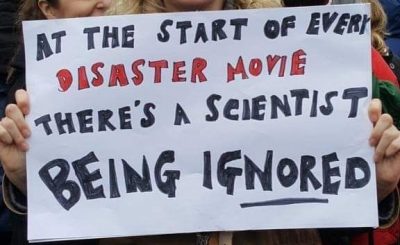
SciComm 1:1
Personal tailor-made training that will get you the impact your research deserves
SciComm 101
Learn about why Science Communication (SciComm) is vital for your career and gain some basic skills
Communicating your science is vital for your success as a researcher!
 Ask any scientist—preparing to deliver a lecture or interviewing for a job can be a daunting and stressful task. In either setting, the messages need to be clear, concise and, most importantly, memorable.
Ask any scientist—preparing to deliver a lecture or interviewing for a job can be a daunting and stressful task. In either setting, the messages need to be clear, concise and, most importantly, memorable.
My name is Meital Salmor and I am a Science Communication (SciComm) trainer and strategist. My passion is helping researchers to elevate their communication skills and present their research effectively and engagingly to diverse audiences: in talks, job interviews (including job-talks), professional presentations to other science-experts (ERC interviews, thesis presentations, seminars), non-experts (philanthropists, industry leaders, investors), media interviews etc.
Together, we dismantle complicated research and data into clear messages, minimize the use of jargon (when needed) and technical terms and sharpen presentation skills. read more ›


Tel: 972-54-2638828 Rehovot, Israel
SCICOMM IN ACTION
“As researchers, our tendency is to be very focused on our research subjects and less about how it may affect our society in a broader perspective. When I talk about my research, I understand that what seems important to me is not as important or interesting to people outside my research. When training with Meital, I was able to build messages that resonate with different audiences and in an efficient time frame that makes the audience absorb my messages in a memorable way.”
Rafael Stern, PhD student at the Department of Earth and Planetary Sciences, Weizmann Institute of Science
In this video, you can watch Rafael in action, giving a talk about his work while passionately telling the audience his personal story and what led him to do his groundbreaking research in climate science. Wait to the end and listen to the beautiful poem Rafael is reciting.

ANSWER >
ANSWER >
When you talk about your research with enthusiasm and passion- it’s contagious! If people see you love what you’re talking about, they’ll love it too?
Checkout why this happens #mirrorneurons: press here >
ANSWER >
Think of the best, or most memorable, science talks you’ve ever seen and try the following:
- Take 2 minutes to write down the things you’ve seen successful speakers do during their talks.
- Write 3-5 sentences answering these questions:
- Who were the presenters?
- Why do you remember them?
- What do you remember? What sticks with you?
- What did the presenter do to keep you engaged?
Exercise by SCOPE (Science Communication Online Programme)
ANSWER >
Practicing awareness of jargon can be done quite easily. Play a video of a scientific lecture by a well-known expert from a different field than yours (for example if you are a biologist look for a physicist and vice versa).
Now write down the words and technical terms you don’t know. Feeling overwhelmed and confused?
This is a simulation of what happens when you try to explain your research to audiences outside your field of research or to non-professionals.
SUCCESS STORIES
 Shay Shemesh, PhD student
Shay Shemesh, PhD student
Biochemistry, Food Science and Nutrition, The Hebrew University
"…Meital breaks SciComm, step by step, to a set of skills ranging from tools needed for an excellent presentation of research products and audience analysis, to how to position the speaker's hands while standing on stage…"
 Efrat Resnick, PhD student
Efrat Resnick, PhD student
Chemical and Structural Biology, Weizmann Institute of Science
"During the training I learned to easily explain my research to diverse audiences while adapting to different situations, time frames and the levels of interest and knowledge of people who listen to my talks. "
 Tom Manovitz, PhD, Post-Doctoral Fellow
Tom Manovitz, PhD, Post-Doctoral Fellow
Physics, Harvard University
"…thanks to Meital’s excellent training I was able to minimize my extensive use of jargon and technical terms when I speak and to create a set of analogies and clear messages that express the meaning of my research…"
MORE ON SCICOMM

Why are scientists being ignored?
Maybe if their message was clearer, it wouldn't have been ignored..?😉 Having Scicomm skills helps you make your scientific message

Public speaking and SciComm
Public speaking is all about charisma and NATURAL talent! Some people are just BORN with it! Either you HAVE it

I have conflicts with how my science is being presented in the media and to nonprofessionals
I have conflicts with how my science is being presented in the media and to nonprofessionals- sounds familiar? One of

Empathy in science
Communicating your science to others has a lot to do with empathy. Look at the person in front of you-







